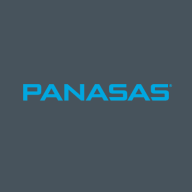

Panasas ActiveStor and NetApp FAS Series are competitive storage solutions in data storage. Panasas ActiveStor has the upper hand in scalability and cost-effectiveness, whereas NetApp FAS Series offers advanced data management and configuration.
Features: Panasas ActiveStor delivers high-performance computing, scalability, and straightforward management tools, ensuring efficient workflows. NetApp FAS Series provides flexible hybrid cloud capabilities, comprehensive data protection, and storage efficiency, accommodating diverse business needs.
Ease of Deployment and Customer Service: Panasas ActiveStor involves significant initial setup but offers excellent customer support for problem resolution. NetApp FAS Series is notable for straightforward deployment, ensuring quick operational readiness, with reliable support services for integration and management.
Pricing and ROI: Panasas ActiveStor presents competitive pricing with favorable ROI through scalable solutions that reduce upfront costs and enhance long-term value. NetApp FAS Series requires a higher initial investment but offers substantial ROI through enhanced performance, ideal for businesses that value extensive feature availability and operational efficiency.
| Product | Market Share (%) |
|---|---|
| NetApp FAS Series | 10.2% |
| Panasas ActiveStor | 1.1% |
| Other | 88.7% |

| Company Size | Count |
|---|---|
| Small Business | 31 |
| Midsize Enterprise | 37 |
| Large Enterprise | 57 |
NetApp FAS series is an enterprise-level storage system that provides a wide variety of data management services, including data protection, block and file storage, and data management.
NetApp FAS is designed to be highly scalable, allowing your organization to grow storage capacity on demand. NetApp FAS also supports multiple protocols, including NFS, SMB, iSCSI, and Fibre Channel, as well as various storage architectures, including SAN (Storage Area Network) and NAS (Network-Attached Storage).
The FAS series has multiple data protection and data management features, including snapshots, cloning, replication, and deduplication, to help secure your data and manage it more efficiently. The system integrates with other NetApp products and solutions, to create a unified data management platform. The system can be deployed on-premise, on multi-cloud environments, or hybrid.
NetApp FAS Series Benefits and Features
NetApp FAS series provides its users with several key benefits and features, including:
Reviews from Real Users
NetApp FAS Series stands out among its competitors for a number of reasons. Several major ones are its speed, reliability, and a wide variety of features.
Adriano S., IT project and infrastructure service manager, writes, “The replication feature is noteworthy because it's faster than most and it uses little bandwidth. Then there's the friendly interface that the equipment offers. With this interface, it is very easy to manage.”
Temitope O., a NetApp product manager at Hiperdist Ltd, says, “I like the unified management feature because sometimes you end up running a single protocol on the entire system. You rather have a system for a particular protocol and another system for other protocols, especially in a big environment like mine.”
In our most recent product, the ActiveStor Ultra, Panasas has developed a new approach called Dynamic Data Acceleration Technology. It uses a carefully balanced set of HDDs, SATA SSD, NVMe SSD, NVDIMM, and DRAM to provide a combination of excellent performance and low cost per terabyte.
• HDDs will provide high bandwidth data storage if they are never asked to store anything small and only asked to do large sequential transfers. Therefore, we only store large Component Objects on our low-cost HDDs.
• SATA SSDs provide cost-effective and highbandwidth storage as a result of not having any seek times, so that’s where we keep our small Component Objects.
• NVMe SSDs are built for very low latency accesses, so we store all our metadata in a database and keep that database on an NVMe SSD. Metadata accesses are very sensitive to latency, whether it is POSIX metadata for the files being stored or metadata for the internal operations of the OSD.
• An NVDIMM (a storage class memory device) is the lowest latency type of persistent storage device available, and we use one to store our transaction logs: user data and metadata being written by the application to the OSD, plus our internal metadata. That allows PanFS to provide very low latency commits back to the application.
• We use the DRAM in each OSD as an extremely low latency cache of the most recently read or written data and metadata.
To gain the most benefit from the SATA SSD’s performance, we try to keep the SATA SSD about 80% full. If it falls below that, we will (transparently and in the background) pick the smallest Component Objects in the HDD pool and move them to the SSD until it is about 80% full. If the SSD is too full, we will move the largest Component Objects on the SSD to the HDD pool. Every ActiveStor Ultra Storage Node performs this optimization independently and continuously. It’s easy for an ActiveStor Ultra to pick which Component Objects to move, it just needs to look in its local NVMe-based database.
We monitor all NAS reviews to prevent fraudulent reviews and keep review quality high. We do not post reviews by company employees or direct competitors. We validate each review for authenticity via cross-reference with LinkedIn, and personal follow-up with the reviewer when necessary.